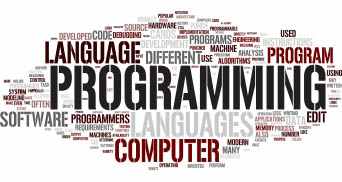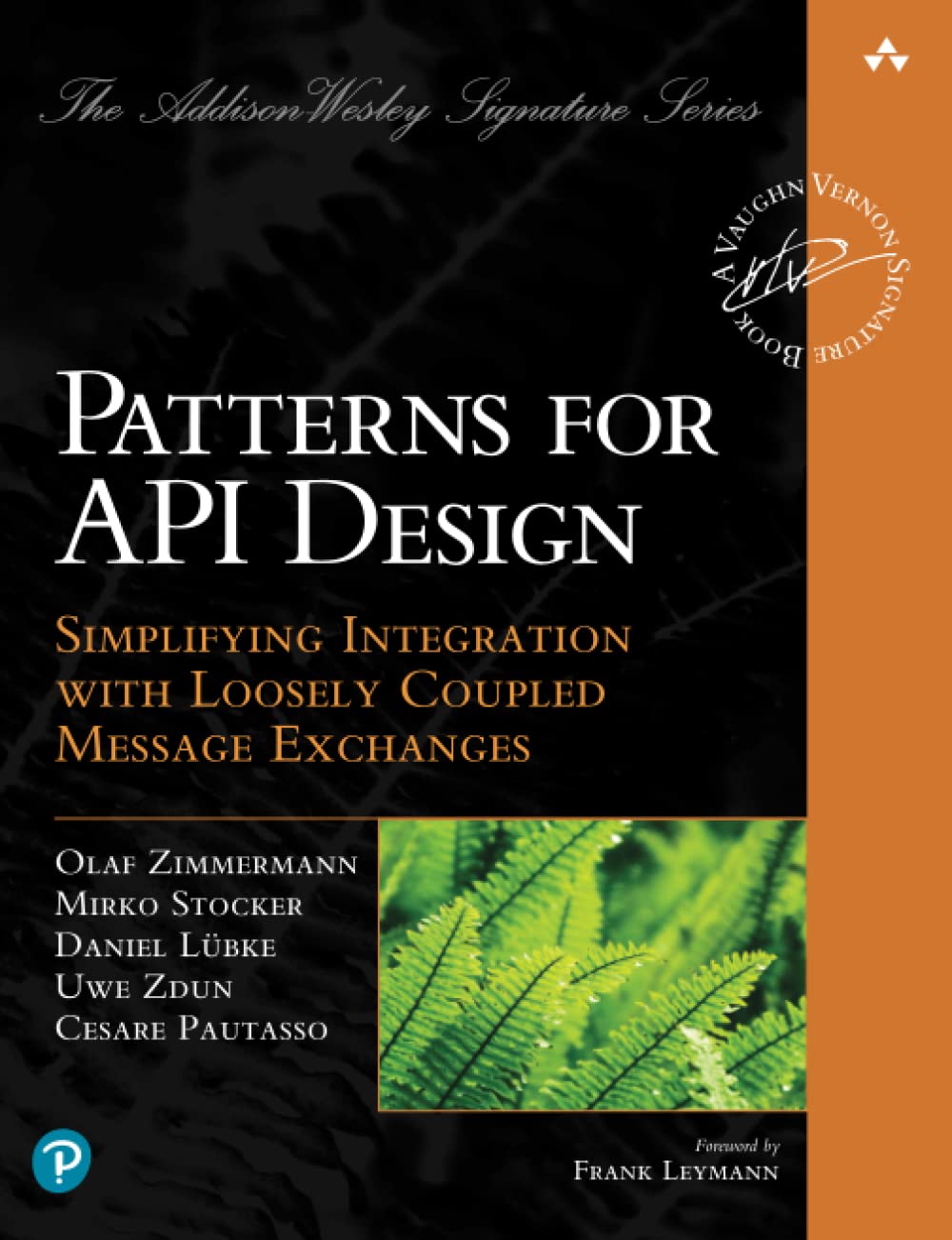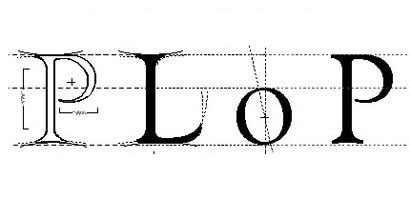-

PLoP
Pattern Languages of Programs, People, and Practices (PLoP®) is the premier conference for pattern authors and users to gather, discuss and learn more about patterns. To achieve this, the conference promotes the use of patterns and pattern languages, as well as the underlying theory of the nature of order. PLoP 2025 will be held October 12-15, 2025. Visit the PLoP Official Site,
- 1
The Hillside Mission

The mission of the Hillside Group is to improve the quality of life and society as a whole. This includes architects, developers, managers, owners, workers, educators, students, and more. Understanding and helping the human element is critical for achieving success. The Hillside Group believes in making processes and design more humane by paying attention to real people and existing practices.
The Hillside Group promotes the use of patterns and pattern languages to record, analyze, and share knowledge to help achieve its mission. The Hillside Group sponsors a variety of activities to achieve this mission—organizing workshops, hosting PLoP (pattern) conferences, and producing publications for discussing, recording, and documenting successful practices.
The Hillside Group supports many different conferences such as: PLoP, EuroPLoP, AsianPLoP, VikingPLoP, SugarLoafPLoP, and ChiliPLoP. These conferences focus on writing groups to better improve patterns through group exposure. Each conference offers advanced topics for the more adept pattern writers. Participants have the opportunity to refine and extend their patterns with help from knowledgeable and sympathetic patterns enthusiasts.
Pattern Books
The Design Patterns Book Series showcases many patterns from PLoP conferences and leading experts in the patterns field.

See our Pattern Book Library filled with over 80 Pattern related books.
Patterns Resources
- Pattern Definition
A pattern language defines a consists of patterns and the rules with sequences to combine them.
- Patterns Catalog
A collection of pattern resources on the web. Sign up for an account to add your own.
- Tools for Writing Patterns
Pattern writing tools include example code and pattern writing templates.
- PLoP Conference Proceedings
Past conference proceedings from the PLoP conferences.
PLoP Conferences
Patterns Information
There are several mailing lists dealing with patterns.
Information about how to subscribe to each can be found below.
This email address is being protected from spambots. You need JavaScript enabled to view it.
is for presenting and describing software patterns.
This email address is being protected from spambots. You need JavaScript enabled to view it. is for presenting and
describing business patterns.
This email address is being protected from spambots. You need JavaScript enabled to view it. concerns patterns on concurrency,
distribution, and IPCs.
This email address is being protected from spambots. You need JavaScript enabled to view it. is about decoupling &
complexity management.
This email address is being protected from spambots. You need JavaScript enabled to view it. is for
discussion of patterns in general.
This email address is being protected from spambots. You need JavaScript enabled to view it. is about the design
patterns in the Gang of Four's book.
This email address is being protected from spambots. You need JavaScript enabled to view it. is about the patterns described
by the Siemens guys.
This email address is being protected from spambots. You need JavaScript enabled to view it. is for discussing
patterns involving organizations.
This email address is being protected from spambots. You need JavaScript enabled to view it. is about patterns described in
CORBA Design Patterns
and related
patterns.
This email address is being protected from spambots. You need JavaScript enabled to view it. is for discussion Power Builder patterns.
This email address is being protected from spambots. You need JavaScript enabled to view it.
concerns antipattern refactoring and
the book AntiPatterns.
This email address is being protected from spambots. You need JavaScript enabled to view it.
is about patterns for software
configuration management.
This email address is being protected from spambots. You need JavaScript enabled to view it.
is about patterns for
telecommunications
How to Subscribe to the Various Lists
If you have a browser that handles forms, there is a page for subscribing and unsubscribing directly.
This email address is being protected from spambots. You need JavaScript enabled to view it. is for presenting and describing software patterns. They don't have to be object-oriented or design patterns, though most of them are.
To subscribe, send a request to This email address is being protected from spambots. You need JavaScript enabled to view it. containing the word subscribe in the Subject: field. Don't say "please subscribe me" or "I want to subscribe" or anything else. Just use the one word "subscribe". If you want a human to read your mail, type "Re: <something>" in the subject. To unsubscribe, send a request to This email address is being protected from spambots. You need JavaScript enabled to view it. containing a single word unsubscribe in the Subject: field.
This email address is being protected from spambots. You need JavaScript enabled to view it. is for presenting and describing business patterns.
To subscribe, send a request to This email address is being protected from spambots. You need JavaScript enabled to view it. containing a single word subscribe in the Subject: field. Don't say "please subscribe me" or "I want to subscribe" or anything else. Just use the one word "subscribe". If you want a human to read your mail, type "Re: <something>" in the Subject: field. To unsubscribe, send a request to This email address is being protected from spambots. You need JavaScript enabled to view it. containing a single word unsubscribe in the Subject: field.
This email address is being protected from spambots. You need JavaScript enabled to view it. is for presenting and creating patterns on concurrency, distribution, and IPCs.
To subscribe, send a request to This email address is being protected from spambots. You need JavaScript enabled to view it. containing a single word subscribe in the Subject: field. Don't say "please subscribe me" or "I want to subscribe" or anything else. Just use the one word "subscribe". If you want a human to read your mail, type "Re: <something>" in the Subject: field. To unsubscribe, send a request to This email address is being protected from spambots. You need JavaScript enabled to view it. containing a single word unsubscribe in the Subject: field.
This email address is being protected from spambots. You need JavaScript enabled to view it. is for presenting and creating patterns about decoupling systems and managing complexity so that an architecture can be implemented in the context of organizational constraints. Of particular interest are:
- applications of "classic" patterns, like those in Design Patterns to the problem of designing an architecture to facilitate groups working together, and
- new patterns, perhaps combining GOF patterns, to achieve the same goal.
To subscribe, send a request to This email address is being protected from spambots. You need JavaScript enabled to view it. containing a single word subscribe in the Subject: field. Don't say "please subscribe me" or "I want to subscribe" or anything else. Just use the one word "subscribe". If you want a human to read your mail, type "Re: <something>" in the Subject: field. To unsubscribe, send a request to This email address is being protected from spambots. You need JavaScript enabled to view it. containing a single word unsubscribe in the Subject: field.
This email address is being protected from spambots. You need JavaScript enabled to view it. is for discussion of patterns in general, i.e., for discussing how to find patterns, how to organize them, or the meaning of patterns, but not necessarily about particular patterns.
To subscribe, send a request to This email address is being protected from spambots. You need JavaScript enabled to view it. containing a single word subscribe in the Subject: field. Don't say "please subscribe me" or "I want to subscribe" or anything else. Just use the one word "subscribe". If you want a human to read your mail, type "Re: <something>" in the Subject: field. To unsubscribe, send a request to This email address is being protected from spambots. You need JavaScript enabled to view it. containing a single word unsubscribe in the Subject: field.
This email address is being protected from spambots. You need JavaScript enabled to view it. is about the design patterns in the Gang of Four's book Design Patterns: Elements of Reusable Object-Oriented Software.
To subscribe, send a request to This email address is being protected from spambots. You need JavaScript enabled to view it. containing a single word subscribe in the Subject: field. Don't say "please subscribe me" or "I want to subscribe" or anything else. Just use the one word "subscribe". If you want a human to read your mail, type "Re: <something>" in the Subject: field. To unsubscribe, send a request to This email address is being protected from spambots. You need JavaScript enabled to view it. containing a single word unsubscribe in the Subject: field.
This email address is being protected from spambots. You need JavaScript enabled to view it. is for reviewing and discussing the patterns described in the forthcoming book Pattern-Oriented Software-Architecture - A System of Patterns.
To subscribe, send a request to This email address is being protected from spambots. You need JavaScript enabled to view it. containing a single word subscribe in the Subject: field. To unsubscribe, send a request to This email address is being protected from spambots. You need JavaScript enabled to view it. containing a single word unsubscribe in the Subject: field.
This email address is being protected from spambots. You need JavaScript enabled to view it. For discussing patterns involving organizations, and the interaction between organization and architecture.
To subscribe, send a request to This email address is being protected from spambots. You need JavaScript enabled to view it. containing a single word subscribe in the Subject: field. To unsubscribe, send a request to This email address is being protected from spambots. You need JavaScript enabled to view it. containing a single word unsubscribe in the Subject: field.
This email address is being protected from spambots. You need JavaScript enabled to view it. For discussing patterns described in the book CORBA Design Patterns and related patterns. This email address is being protected from spambots. You need JavaScript enabled to view it. will also include presentation and discussion of Interface Definition Language (IDL) idioms from the Object Management Group's (OMG) IDL Metrics Working Group and new pattern languages sharing the same reference models (the book's Software Design Level Model and the OMG's Object Management Architecture).
To subscribe, send a request to This email address is being protected from spambots. You need JavaScript enabled to view it. containing a single word subscribe in the Subject: field. To unsubscribe, send a request to This email address is being protected from spambots. You need JavaScript enabled to view it. containing a single word unsubscribe in the Subject: field.
This email address is being protected from spambots. You need JavaScript enabled to view it. For discussing Power Builder patterns.
To subscribe, send a request to This email address is being protected from spambots. You need JavaScript enabled to view it. containing a single word subscribe in the Subject: field. To unsubscribe, send a request to This email address is being protected from spambots. You need JavaScript enabled to view it. containing a single word unsubscribe in the Subject: field.
This email address is being protected from spambots. You need JavaScript enabled to view it. is a software development forum for the theory and practice of AntiPattern recognition and AntiPattern refactoring. AntiPatterns is a branch of design patterns research that documents negative solutions and their resolution through refactoring. Well known AntiPatterns include: Spagetti Code, Analysis Paralysis, and Stovepipe Systems. These and other AntiPatterns are documented in the book: W.J. Brown, H.W. McCormick, R.C. Malveau, and T.J. Mowbray, "ANTIPATTERNS: Refactoring Software, Architectures, and Projects in Crisis" , John Wiley & Sons, 1998. AntiPatterns research spans software design, software architecture, and software project issues, including both formal and informal refactoring techniques. The purpose of This email address is being protected from spambots. You need JavaScript enabled to view it. is to promote the general understanding of AntiPatterns and related extensions of design patterns research.
To subscribe, send a request to This email address is being protected from spambots. You need JavaScript enabled to view it. containing a single word subscribe in the Subject: field. To unsubscribe, send a request to This email address is being protected from spambots. You need JavaScript enabled to view it. containing a single word unsubscribe in the Subject: field.
This email address is being protected from spambots. You need JavaScript enabled to view it. is a list created for patterns of software configuration management.
To subscribe, send a request to This email address is being protected from spambots. You need JavaScript enabled to view it. containing a single word subscribe in the Subject: field. To unsubscribe, send a request to This email address is being protected from spambots. You need JavaScript enabled to view it. containing a single word unsubscribe in the Subject: field.
telecomThis email address is being protected from spambots. You need JavaScript enabled to view it. is a list created for patterns of telecommunications systems.
To subscribe, send a request to This email address is being protected from spambots. You need JavaScript enabled to view it. containing a single word subscribe in the Subject: field. To unsubscribe, send a request to This email address is being protected from spambots. You need JavaScript enabled to view it. containing a single word unsubscribe in the Subject: field.
Welcome to the patterns home page. It is a source for information about all aspects of software patterns and pattern languages. If you are new to patterns, James Coplien and Richard Gabriel have created a succinct pattern definition.
 Patterns and Pattern Languages are ways to describe best practices, good designs, and capture experience in a way that it is possible for others to reuse this experience. The Hillside Group takes pleasure in sponsoring many different PLoP conferences that are provided for the betterment of the pattern community.
Patterns and Pattern Languages are ways to describe best practices, good designs, and capture experience in a way that it is possible for others to reuse this experience. The Hillside Group takes pleasure in sponsoring many different PLoP conferences that are provided for the betterment of the pattern community.
Fundamental to any science or engineering discipline is a common vocabulary for expressing its concepts, and a language for relating them together. The goal of patterns within the software community is to create a body of literature to help software developers resolve recurring problems encountered throughout all of software development. Patterns help create a shared language for communicating insight and experience about these problems and their solutions. Formally codifying these solutions and their relationships lets us successfully capture the body of knowledge which defines our understanding of good architectures that meet the needs of their users. Forming a common pattern language for conveying the structures and mechanisms of our architectures allows us to intelligibly reason about them. The primary focus is not so much on technology as it is on creating a culture to document and support sound engineering architecture and design.
- Brad Appleton
- Commercial course by Tessellation Training on "Design Patterns in C++".
- Commercial course by Tessellation Training on "Design Patterns in Java".
- Commercial course by Martin Fowler on analysis patterns.
- Commercial course by the Dalmatian Group on patterns.
- Commercial course in London about design patterns.
- Design Patterns course taught at Universidad de Los Andes by Professor Pablo Figueroa on patterns.
- Design Patterns course offered by the University of California: Santa Cruz (UCSC) Extension in Silicon Valley. It's based on the Go4 Book, and taught by Geri Schneider
- Design Patterns (Gang of Four) by Ralph Johnson and The Refactory, Inc.
- Introduction to Object Design and UML: A Responsibility-Driven Approach by Rebecca Wirfs-Brock
- Object Oriented Technology course at the University of Geneva.
- Patterns Workshop by RoleModel Software
- Patterns Course by Roger Whitney
- Software Architecture at Utrecht University (Netherlands) taught by Gert Florijn using Design Patterns.
- Thinking in Objects by A course on object technology and patterns
- The Refactory, Inc. has commercial courses that have patterns as part of the curriculum designed by Brian Foote, Ralph Johnson, Brian Marick, and Joseph Yoder
- Design Patterns in Java, C#, or Smalltalk.
- Frameworks
- Refactoring
- Object Oriented Design: "Introductory and Advanced Courses"
- Building Adaptable Systems
- Pragmatic Test Driven Development
- Two workshops by Industrial Logic
- Design Patterns Workshop, an intensive, in-person workshop featuring Joshua Kerievsky, Ward Cunningham, Brian Foote, Russ Rufer and other patterns experts.
- What did you use to produce the diagrams?
- idraw: an application which comes with InterViews.
- Where can I get InterViews?
- By ftp from ftp://interviews.stanford.edu/. You might also wish to look at Fresco which is a descendent of InterViews.
- Where can I get Unidraw?
- It comes with Interviews. You cang et a copy of the Unidraw thesis for nominal charge from Aomi Schulman . Ask for a copy of CSL-TR-90-427 titled "Generalized Graphical Object Editing."
- What is the Gang of Four?
- See the The Gang of Four.
- How can I get some of the references referred to in the book?
- We have placed some of them on-line here.
- You didn't talk about destroying Singletons. How do I do that?
- See To Kill a Singleton
- Hillside Fellowship Award
- PLoP Conference Proceedings
- Patterns for API Design
- Pattern Languages of Programing
- Security Patterns in Practice
The Hillside Fellowship Award
The Hillside Fellowship Program was established in 2016 to recognize members of The Hillside Group who have made exceptional contributions to the Hillside community and to the Patterns community at large. The title of Hillside Fellow denotes an outstanding member who has consistently and repeatedly:
- provided excellence in contributions to the patterns body of knowledge
- advanced the arts,
PLoP Conference Proceedings
After the PLoP Workshops, writers are encouraged to modify their papers and submit a final version. The final versions are updated, collected, available from the conference website.
Conference Proceedings (ACM Digital Library)
Some of the PLoP accepted papers have been published on the ACM Digital Library . The program committee will review the final versions of the papers and recommend acceptance
… Read MorePatterns for API Design
" Patterns for API Design " by Olaf Zimmermann, Mirko Stocker, Daniel Lubke, Uwe Zdun, and Cesare Pautasso

This book is for any domain, technology, or platform
- Identify and overcome API Challenges
- Size your endpoint types and operations
- Design request and response messages and their representations
- Refine your message design for quality
- Combine patterns to solve real-world problems and make
PLoP™ (Oct 12-15, 2025)

Check out the main PLoP Website for more information and details!!!
Read More
Security Patterns in Practice
Eduardo Fernandez's new book " Security Patterns in Practice: Designing Secure Architectures with Software Patterns " has been published.

It is the result of 14 years of producing security patterns with students and colleagues. Almost all of these patterns went through PLoP, EuroPLoP, AsianPLoP, or SugarLoafPLoP. Many of you have participated as shepherds or workshop commentators, the book owes something to
… Read More





